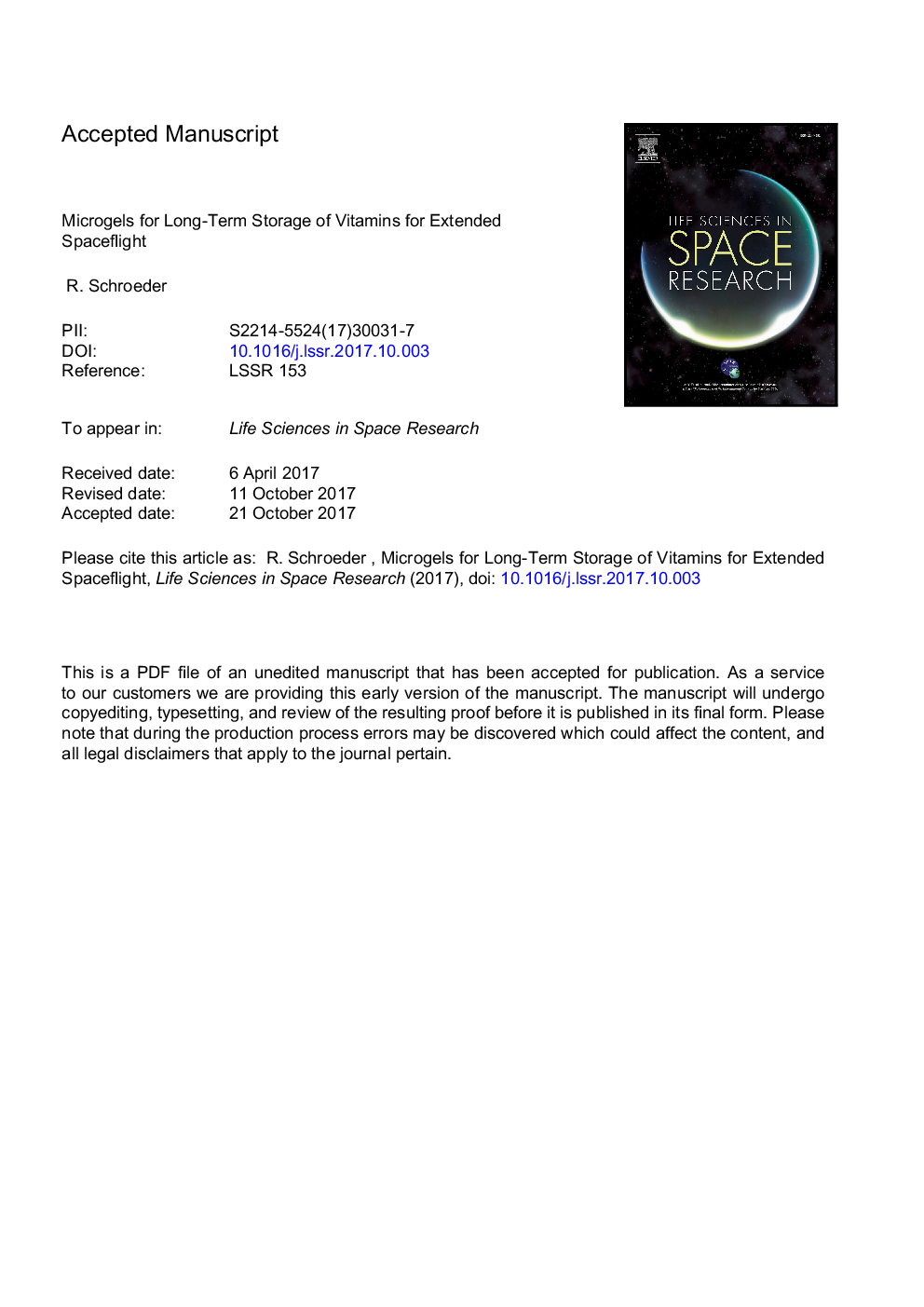| Article ID | Journal | Published Year | Pages | File Type |
|---|---|---|---|---|
| 8247940 | Life Sciences in Space Research | 2018 | 28 Pages |
Abstract
Biocompatible materials that can encapsulate large amounts of nutrients while protecting them from degrading environmental influences are highly desired for extended manned spaceflight. In this study, alkaline-degradable microgels based on poly(N-vinylcaprolactam) (PVCL) were prepared and analysed with their regard to stabilise retinol which acts as a model vitamin (vitamin A1). It was investigated whether the secondary crosslinking of the particles with a polyphenol can prevent the isomerisation of biologically active all-trans retinol to biologically inactive cis-trans retinol. Both loading with retinol and secondary crosslinking of the particles was performed at room temperature to prevent an early degradation of the vitamin. This study showed that PVCL microgels drastically improve the water solubility of hydrophobic retinol. Additionally, it is demonstrated that the highly crosslinked microgel particles in aqueous solution can be utilised to greatly retard the light- and temperature-induced isomerisation process of retinol by a factor of almost 100 compared to pure retinol stored in ethanol. The use of microgels offers various advantages over other drug delivery systems as they exhibit enhanced biocompatibility and superior aqueous solubility.
Related Topics
Physical Sciences and Engineering
Earth and Planetary Sciences
Space and Planetary Science
Authors
R. Schroeder,
